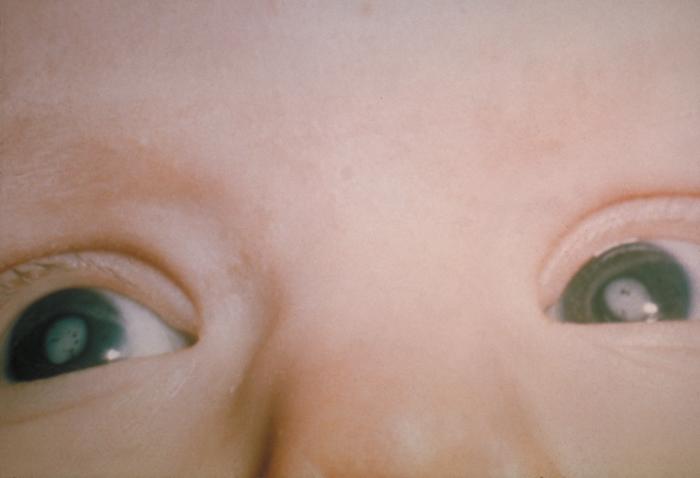Congenital Rubella

Congenital rubella refers to the group of birth defects that occur in an infant whose mother is infected with the virus that causes German measles (rubella) during pregnancy. Congenital rubella occurs when the rubella virus in the mother affects the developing baby in the first 3 months of pregnancy. After the fourth month, if the mother has a rubella infection, it is less likely to harm the developing baby. The most common problems are hearing loss due to damage to the nerve pathways from the inner ear to the brain (sensorineural hearing loss), ocular abnormalities (cataract, infantile glaucoma, and pigmentary retinopathy) and heart problems. Other symptoms and signs may include intrauterine growth retardation, prematurity, stillbirth, miscarriage, neurological problems (intellectual disability, low muscle tone, very small head), liver and spleen enlargement (hepatosplenomegaly), jaundice, skin problems, anemia, hormonal problems, and other issues.
The number of babies born with congenital rubella is much less since the rubella vaccine was developed. Pregnant women who are not vaccinated for rubella and who have not had the disease in the past risk infecting themselves and their unborn baby.
Please visit the link from the Centers for Diseases Control and Prevention (CDC) to learn more about rubella vaccination: Rubella (German Measles) Vaccination
The number of babies born with congenital rubella is much less since the rubella vaccine was developed. Pregnant women who are not vaccinated for rubella and who have not had the disease in the past risk infecting themselves and their unborn baby.
Please visit the link from the Centers for Diseases Control and Prevention (CDC) to learn more about rubella vaccination: Rubella (German Measles) Vaccination